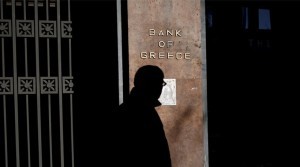SYRIZA and the Ministry of Finance have been embroiled in a “statements war” on the payment or lack thereof, of bonds in March.
The conclusion from this confrontation is that any government will not be hard-pressed to pay off 1.6 billion required until March towards lenders, but if such an action were to be taken, there would be an ensuing difficulty in securing the funds to pay off its future commitments (1.6 billion in April, around 1 billion in May). If there are no loans from foreign countries or a different agreement with lenders on extra bond issuances, the dilemma for the future government from Spring onwards, will be whether to pay loans or payments and pensions.
Mr. Tsipras, speaking to Real News, stated that during March, the country’s commitments will be paid in full. There are no emergency bond issuances required for this amount, if state income is handled well. Perhaps, however, the president of SYRIZA should wait and see on the December and January figures before he makes statements on new bonds.
After the statement, the Ministry of Finance hurriedly clarified that anything that the state was to receive from bond interests has been received since December. For this reason, the Ministry has clarified that there will be no bonds issuance after the one in December.
The Ministry’s statement underlines that loan needs for March are “mandatory” because the 1.6 billion are almost in full, tied up with payments to the IMF, while 7.1 billion expected by the Troika have been “frozen”, and the state has used up its yearly interest bonds borrowing program (15 billion, yearly), already. New borrowing is not allowed from the existing agreement between the Troika and the Greek public sector.
Thus, the Ministry of Finance states that the new government must manage the existing state funds as well as the funds arising from taxation in the coming two months. The Ministry also states that the logic that the government could issue bonds to raise money is unfounded in reality, since there is no deal with lenders, and since the banking system is running dry.
SYRIZA, on its part, considers the Ministry’s political intervention as something which should not be done, and reiterates that SYRIZA’s president was speaking on a form of negotiation that the Ministry cannot “Fathom”, through which “SYRIZA will meet the country’s borrowing needs”.
The party also judges that the Ministry, after bringing up Greek banks’ liquidity issues, is in the wrong, considering that “Mr. Draghi is responsible for the big, systemic banks” and that “it would be illogical and would cause a great blow to the Banking Union’s baby steps, if a problem was created on banks that it oversees”.
In reality, this whole “back and forth” is taking place on whether the existing money to be paid will be enough, or whether there will be a payments stoppage abroad or domestically. All in all, the public sector must pay everything it has been since December and until March, to a total of 15 billion euro, while it must also receive 15-17 billion through taxation, according to the budget. One third (1/3) of the 15 billion it pays out are bonds, 1/3 are salaries, and 1/3 are operational costs of the state. The new government may already be called to choose its own path if it sees that taxation does not pay as much as it should, which is already evident, perhaps during to the elections period.
Ask me anything
Explore related questions





